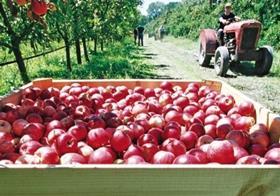
As New Zealand’s apple industry gears up to send fruit to Australia for the first time in ninety years a dispute has broken out over potential export regulations.
According to a report by Business Day, many of the country’s larger growers want apple exports regulated to enable coordinated marketing and to ensure quality standards are upheld, thus preventing apples from the country swamping the Australian market.
Meanwhile, others argue regulations will only add unnecessary costs for little to no benefit. Opponents to the proposed regulatory legislation also believed it was being pushed through parliament without sufficient industry consultation.
New Zealand’s agriculture minister David Carter has been given approval by Cabinet to have apple exports to Australia regulated by the Horticulture Exporters Authority (HEA), the news source reported.
Pipfruit New Zealand has been lobbying Members of Parliament to support amending legislation that would enforce regulations on apple exports to Australia.
Business Day reported opposition from just one Member of Parliament would be enough to block the amendment of current legislation.
Those opposed to regulations are pressuring political party Act’s parliamentary leader, John Boscawan, to block any legislative changes.
This has annoyed many in the industry who see the need to regulate exports through the HEA.
“They are in danger of destroying the biggest opportunity for the industry in 90 years,” former ENZA director John McCliskie told Business Day. “They will stuff up the Australian market if they all jump on the next plane with a lot of fruit that’s not wanted or understood by the market over there,” he added.
The opponents of the proposed regulations argued HEA arrangements have not benefitted other horticultural exports and added costs – particularly for growers who have found their own markets.
“HEA just adds costs and bureaucratic red tape that is unnecessary and brings no obvious benefits,” apple exporter Paul Dellabarca told Business Day.
He said many of the larger growers who favoured the regulations were locked into lower value apple varieties, while smaller growers could profit from growing new varieties and finding niche markets for them.
Pipfruit New Zealand chair Ian Palmer said if the amending legislation is passed and the industry supports the HEA option, it could be in place by 2012.



